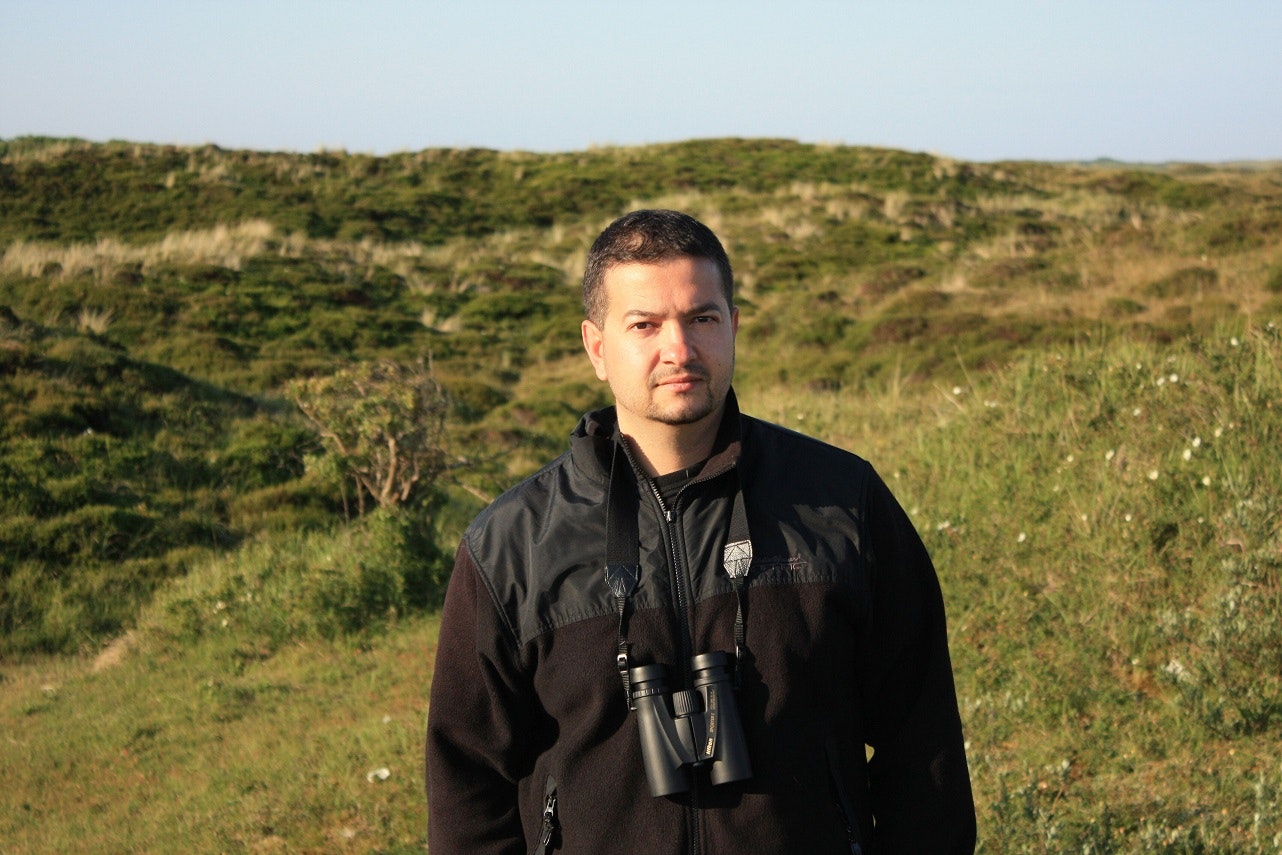WETLANDS UNDER PRESSURE
The coastal lakes of Shabla and Durankulak provide critical habitat for 260 bird species. In the winter, migratory water birds congregate in the thousands, placing the lakes among the most important stop over sites along the Bulgarian Black Sea coast. Despite this, mounting infrastructure development and economic growth in the area pose a significant challenge for conservationists who aim to ensure the protection of these wetlands while meeting human needs.

BUILDING BRIDGES
For 15 years, Nikolai and his team at the Bulgarian Society for the Protection of Birds have worked to champion the conservation of the globally threatened Red-breasted Goose, a flagship species for these precious sites. By engaging with farmers to develop an agri-environment payment scheme, they have reduced conflict and persecution of geese due to crop damage and have boosted perceptions of conservation as an opportunity to bring value to the region.

MAINSTREAMING CONSERVATION
Nikolai is working alongside local institutions to improve understanding and enforcement of environmental legislation to address illegal hunting and fishing in the region. Together with his team, he will provide a strong and informed voice for the integration of conservation into the imminent Shabla municipality development plan. Through extensive community outreach, he will build local pride in the region’s wildlife, creating an incentive for its conservation.

NIKOLAI’s project will:
- Address threats to the red-breasted goose from intentional and accidental hunting.
- Ensure that conservation values are accounted for in the Shabla municipality development plan.
- Reduce disturbance to roosting red-breasted geese caused by illegal fishing.
- Build local pride in the area’s natural heritage through promotion of bird watching ecotourism.
Why it matters:
- Shabla and Durankulak Lakes are declared wetlands of international importance under the Ramsar Convention.
- 42% of the bird species found at Durankulak are of European conservation concern.
- The number of Red-breasted Geese has nearly halved since 1990. In cold winters, the two lakes have been known to support the species’ entire global population.
“Now, we want to replicate this work and find similar solutions to this in other countries along the flyway.”
Image credits: Daniel Mitev; BSPB
PROJECT UPDATE
2023 Continuation Funding
Beyond borders: Securing migration routes of Red-breasted Geese against illegal hunting
£100,000 over 2 years
The Red-breasted Goose is a flagship species for Bulgaria’s Shabla and Durankulak Lakes, which have been declared wetlands of international importance under the Ramsar Convention. Since the implementation of a National Species Action plan, poaching activities have reduced around these key wintering sites. Extended non-hunting zones, intensive patrols, training, and awareness work has helped to protect the birds in Bulgaria.
However, as migratory birds, their protection requires a multinational approach – which is why Nikolai Petkov is working beyond the borders of Bulgaria and targeting major conservation threats for the Red-breasted Goose in Romania and Kazakhstan. This involves using satellite tagging to collect data on wintering numbers and their flight movements between sites of breeding and feeding importance; working with farmers to resolve conflict with wintering geese (which eat their crops); and raising awareness of illegal retaliatory killings while ensuring stronger law enforcement from authorities.
Continuation Funding will enable Nicky to evaluate the global population through conducting surveys across key wetlands in Kazakhstan during autumn migration. He’ll work with communities and hunting estates in Kazakhstan to install a patrol system to reduce incidents of illegal killing and raise awareness around hunting violations during the country’s autumn and spring hunting period. In Romania, Nicky and his team from the Bulgarian Society for the Protection of Birds will assess the impact of grazing geese on crop yields to inform development of an adequate agri-environmental scheme for farmers. He will also work with authorities to examine the impact of a new Hunting Act in Romania that threatens to open the floodgates to heavy disturbance on the country’s wintering waterfowl.
The project will not only benefit Red-breasted Geese, but also many other wetland species along the flyway. The route that the species uses for migration is used by several other waterfowl species including the globally threatened Lesser White-fronted Goose, the White-headed Duck, Common Pochard and Ferruginous Duck.



